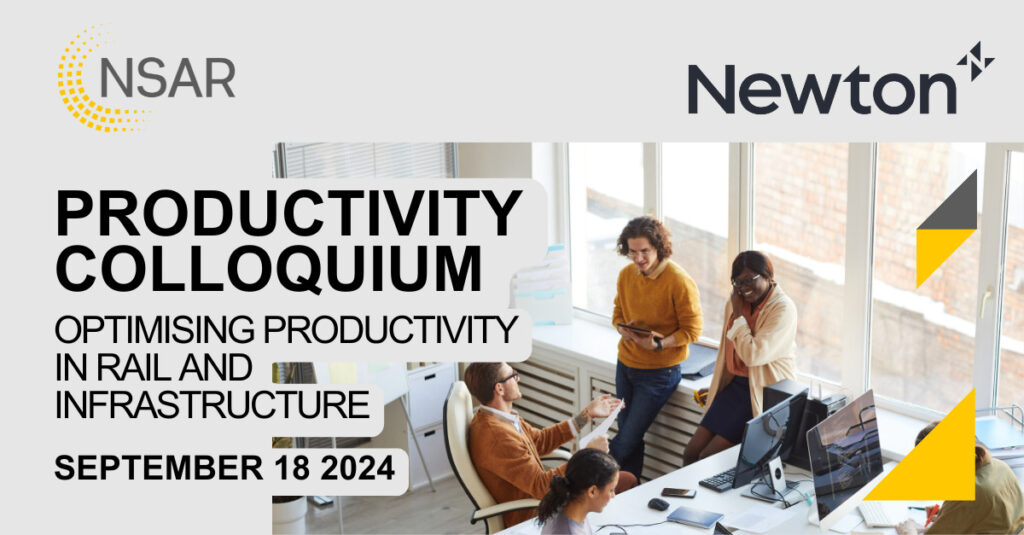With an estimated £77 billion of infrastructure investment forecast over the next decade, the UK has a unique opportunity to transform its rail and broader infrastructure sectors. However, to fully capitalise on these opportunities, it is crucial to focus on enhancing productivity across all stages of project delivery.
NSAR, in association with Newton, hosted a colloquium on 18 September investigating productivity optimisation in rail and infrastructure. The event brought together industry leaders, academics and government representatives to share practical insights and solutions for boosting productivity. It covered a wide range of topics, from how best to measure productivity to the latest innovations in technology.
NSAR Chief Executive Neil Robertson chaired the event and contributing speakers were Emma O’Malley, Management Consultant at Newton; Richard Postance, Global Client Account Lead at Accenture; Professor Malcolm Horner, University of Dundee; Olivia Perkins, Managing Director Rail at Morgan Sindall and Steve Medhurst, Global Rail Practice Leader at RSA Insurance.
Neil described the event as a taster menu of ideas for boosting productivity, and he wasn’t wrong—there was plenty of excellent food for thought.
Key takeaways
- Certainty: Productivity thrives on certainty; clear expectations are crucial for all parties, particularly from the outset.
- Communication: Success requires being explicit about needs and outcomes to avoid confusion and inefficiencies.
- Simplicity: A focus on simplicity helps avoid unnecessary complexity and maintains productivity.
- On-the-ground insight: Direct observation is essential for understanding and resolving productivity issues.
- Building productivity from the outset: Early involvement of commercial and engineering teams is vital for driving productivity.
- Accurate measurement: Gathering and analysing the right data is essential to improving productivity.
- Investment opportunities: With £77 billion in infrastructure investment, maximising productivity is crucial.
- Consistent effort: Productivity improvements require ongoing effort across multiple fronts.
- Technology as a tool: While no single solution exists, technology can be an asset for productivity growth.
- Long-term thinking: A programme-focused approach, rather than a project-by-project mentality, can deliver sustained productivity improvements.

